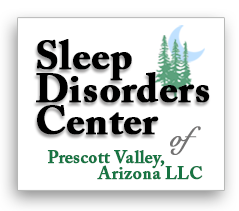Multiple sclerosis is believed to be an autoimmune disorder that causes destruction of the myelin sheath of nerves in the central nervous system. This results in symptoms such as weakness, spasticity, vertigo, disequilibrium, numbness, and loss of vision. What is not commonly appreciated is that sleep disorders are more common in MS than normal. These sleep disorders can cause symptoms that are similar to those of MS and are frequently overlooked as a result. That is unfortunate because diagnosing and treating them can have a very positive impact on MS.
Obstructive sleep apnea is one such disorder. It is twice as frequent in MS as it is in the general population. This is probably due to involvement of nerves that are necessary to maintain proper function of the upper airway. As a result, the symptoms of fatigue and sleepiness due to sleep apnea may be overlooked and dismissed as just another manifestation of MS.
Even worse is that sleep apnea results in the release of what are called inflammatory mediators. Interestingly several of these are the same markers of inflammation such as TNF (tumor necrosis factor) and Il1 (interleukin 1) that are responsible for many of the symptoms of MS. Thus, if unrecognized, the symptom of fatigue associated with MS can only get worse.
The second major sleep disorder seen more commonly in MS than the general population is restless legs syndrome. Unfortunately, it is frequently written off as a symptom of MS and goes untreated. However, if we use the acronym URGE, we can differentiate it from MS. U stands for urge to move in response to uncomfortable sensations. R stands for symptoms that worsen when at rest and immobile. G stands for improvement with getting up and moving, stretching or rubbing. E stands for a propensity for the symptoms to worsen or only occur in the evening. Many patients with MS are experiencing symptoms of RLS that go ignored and untreated because they are mistakenly attributed to the MS. This is unfortunate because there are so many excellent treatments for RLS that would bring these folks relief.
There are now many in the field of sleep medicine who are urging that we take a closer look at underlying sleep disorders in MS. In my next blog, I will be discussing several other sleep disorders that are common in MS but are frequently overlooked. I feel that by educating the folks with MS and their family members, we can see a tangible improvement in the quality of life of those afflicted with this neurodegenerative disease.


